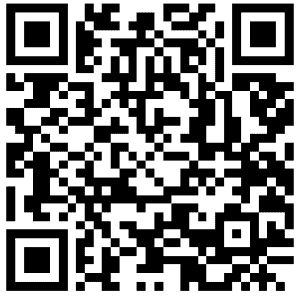“The wrong hire can cost you more than money—it can cost your team morale and productivity.”
Hiring the right talent is crucial for the success of any business, but sometimes the pressure to fill a role quickly leads to hiring mistakes. A bad hire doesn’t just waste time and resources—it can negatively impact your team, operations, and company culture.
In this blog post, we’ll break down the real cost of a bad hire, the warning signs to watch for, and strategies to avoid costly hiring mistakes in the future.
What Is the Real Cost of a Bad Hire?
A bad hire can affect your business in several ways. From direct expenses like recruitment and training to indirect impacts on morale and productivity, the consequences add up quickly.
- Financial Loss
Replacing a bad hire can be expensive. Studies show that the cost of replacing an employee can range from 30% to 200% of their annual salary, depending on the role.
Where the Money Goes:
- Recruitment and advertising costs for the role.
- Training and onboarding expenses for the replacement.
- Severance pay or legal fees if termination is necessary.
Example: Hiring the wrong sales manager earning $80,000 could cost you up to $160,000 when accounting for lost revenue, hiring expenses, and training.
- Lost Productivity
A bad hire often underperforms, leading to missed deadlines, incomplete tasks, or errors that need correction. Worse, their presence can disrupt the productivity of your existing team.
How It Happens:
- Colleagues may spend extra time compensating for the bad hire’s shortcomings.
- Managers get pulled away from strategic work to address issues.
Pro Tip: Poor performance doesn’t just slow down projects—it can affect client relationships and your company’s reputation.
- Impact on Team Morale
The wrong person in the wrong role can negatively affect team dynamics. When employees are forced to work with someone who doesn’t pull their weight or clashes with the team culture, frustration and disengagement often follow.
The Risks:
- Resentment among high-performing employees.
- Turnover increases as frustrated team members leave.
- Damage to culture as collaboration and trust decline.
Pro Tip: A single bad hire can have a ripple effect, damaging relationships and morale across the organization.
- Missed Opportunities
Every day spent with the wrong person in the role is a missed opportunity to have someone who could be driving your business forward.
The Opportunity Cost:
- Losing out on potential revenue growth.
- Delaying critical projects or innovations.
- Failing to achieve strategic goals on time.
Pro Tip: Speeding up the hiring process may seem efficient, but taking extra time to find the right fit pays off in the long run.
How to Avoid a Bad Hire
The good news is that you can prevent hiring mistakes with a more strategic and thorough recruitment process. Here’s how:
- Clearly Define the Role
Ambiguity in job descriptions can attract the wrong candidates and set unclear expectations.
How to Fix It:
- Write a clear and detailed job description that outlines key responsibilities, required skills, and cultural fit.
- Focus on both technical skills and soft skills to ensure alignment with the team.
- Set realistic expectations during interviews to avoid misaligned goals.
Pro Tip: Involve team members in defining the role—they often have valuable insights into what the position truly requires.
- Use Structured Interviews
Unstructured interviews can lead to bias and inconsistent evaluations, increasing the risk of hiring mistakes.
How to Fix It:
- Develop a structured interview process with standardized questions for all candidates.
- Include behavioural interview questions to assess past performance and problem-solving skills.
- Use a scoring system to objectively compare candidates.
Example Behavioural Question:
“Tell me about a time you had to navigate a conflict within a team. What did you do, and what was the outcome?”
- Assess Cultural Fit
Even the most qualified candidate won’t thrive if they don’t align with your company culture.
How to Fix It:
- Discuss your company’s values, work environment, and expectations during the interview.
- Include team members in the hiring process to gauge how well the candidate fits with the group.
- Use assessments or surveys to evaluate alignment with your company’s mission.
Pro Tip: While cultural fit is important, cultural add (bringing fresh perspectives) can also enrich your team.
- Leverage Pre-Employment Assessments
Tools like skills tests and personality assessments can help you determine if a candidate has the right competencies and temperament for the role.
What to Test:
- Technical skills for the specific role.
- Cognitive abilities to gauge problem-solving and critical thinking.
- Emotional intelligence to measure adaptability, collaboration, and communication.
Pro Tip: Use assessments as one part of a comprehensive hiring process—don’t rely on them exclusively.
- Conduct Thorough Reference Checks
Failing to verify a candidate’s background can lead to surprises once they’re on the job.
How to Fix It:
- Speak with former managers or colleagues to confirm the candidate’s experience, skills, and work ethic.
- Ask open-ended questions about their strengths, challenges, and suitability for the role.
- If possible, verify certifications, licenses, or professional memberships.
Pro Tip: Reference checks can reveal red flags that didn’t surface during the interview process.
Conclusion: Hire Smart, Avoid the Costs
A bad hire doesn’t just cost money—it affects your team, productivity, and company culture. By implementing a thoughtful and thorough hiring process, you can minimize the risks and build a team that drives success.
Quick Checklist to Avoid a Bad Hire:
✔ Write a clear and detailed job description.
✔ Use structured interviews with standardised questions.
✔ Evaluate cultural fit and alignment with company values.
✔ Leverage pre-employment assessments to test skills and personality.
✔ Conduct thorough reference checks before making an offer.
Think of hiring as an investment in your company’s future—putting time and effort into the process ensures a higher return.
If you need support refining your hiring strategy or finding the right talent, contact us today to learn how we can help.






0 Comments